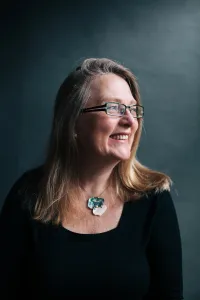We bring you the opportunity to get to know another invited speaker to the upcoming 14th NYRA Meeting in Norwich (September 19th-21st) through this ‘tête-à-tête’.
Andrea has over 20 years’ experience helping people build healthy mindsets and emotionally-intelligent relationships at work, home and school. She is a highly experienced trainer, a qualified Parent and Youth Educator (PET/YET, California), a Mindset Practitioner and an Accredited Member of the Association of Coaching. Her background is in Education (Person Centred Approach: University of East Anglia); she is a Mum to two children; and has been successfully self-employed since 2000.
You have extensive experience in coaching people and institutions in leadership, relationships, emotional intelligence and much more. What made you decide to take on such a career path?
I know that every human being has potential – the trick is to create the right environment in which they can find it.
Science has changed with the advent of technology and scientists need to adapt and reinvent themselves more than ever before. Do you observe many similarities between the challenges young researchers face and what transferable skills do you think are most needed in such a changing world?
With the advent of social media, young researchers find themselves in an environment where they will regularly compare themselves with others and feel more exposed than they were before. The skills needed to handle this more effectively come from the inside – self awareness, self regulation, self motivation and, especially, self worth.
Do you think coaching will and should become embedded in all doctoral training schemes?
Yes, creating and disseminating new knowledge requires courage and conviction. This inner confidence can’t always be built or maintained individually. A good coach is very valuable.
What was the greatest success in your career?
Doing a TEDx talk in front of 600 people – freezing on stage, overcoming that and finishing to a round of applause. Phew! Also, working 1:1 with a prisoner who recognised that one of the reasons he was there was because of the home environment he was raised in. This empowered him to start thinking about making choices for himself.
How did you embrace failure throughout your career and what lesson(s) did you learn from it?
There is no failure – only feedback. Once I am able to manage the negative emotions that ‘failure’ brings, I can move forward and try again – but this time with more information. I have learnt to ‘fail’ really well!
What advice would you give young researchers?
You are more powerful than you know, smarter than you think and what you give to the world is very, very important. I appreciate you.

